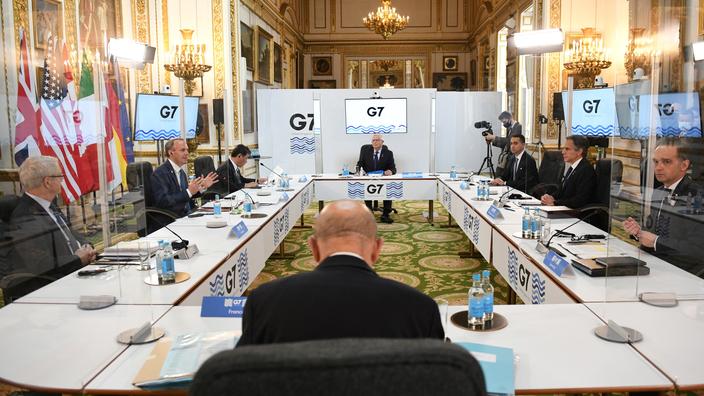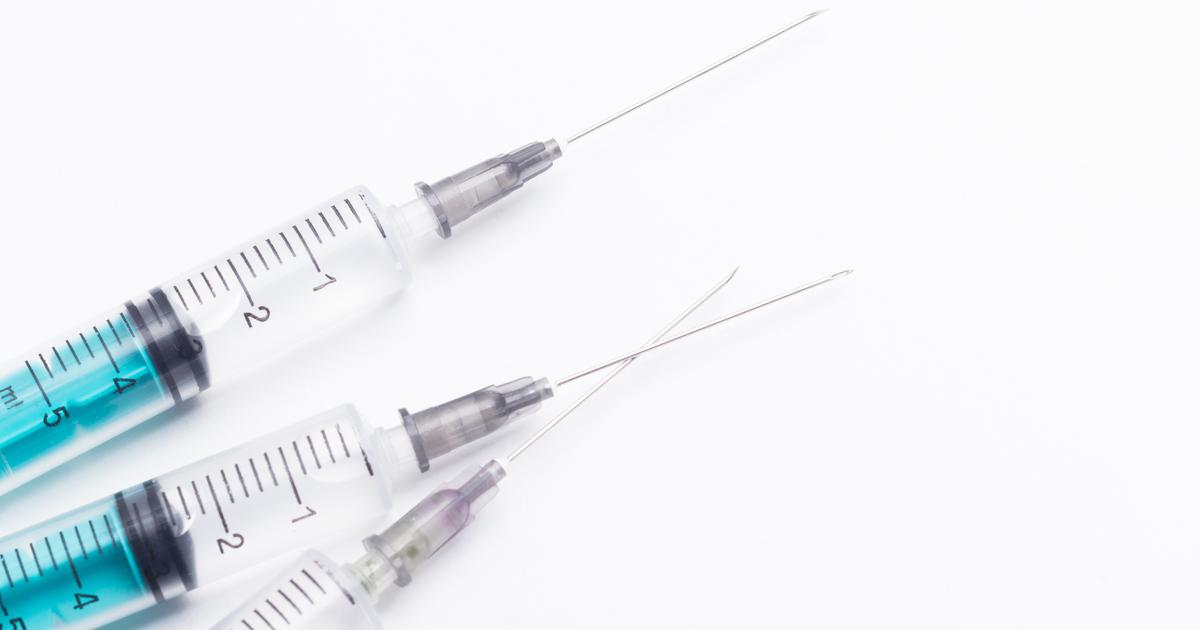Called on by the WHO to show solidarity in the face of the pandemic, the rich countries of the G7 are discussing on Wednesday May 5 ways to ensure a more equitable distribution of anti-Covid vaccines.
Meeting in London since Monday for their first face-to-face meeting in two years, the foreign ministers of Germany, Canada, the United States, France, Italy, Japan and the United Kingdom are to resume their discussions to focus in particular on the health situation.
Read also: Do Indians die less from Covid-19 than the French?
At a time when the progress of vaccination campaigns in Europe or the United States allows a gradual lifting of the restrictions in place against the coronavirus, poor countries are still sorely lacking in doses to be injected to fight the pandemic. The Covax sharing system with poor countries, which is mainly supplied with AstraZeneca vaccines, is slipping: it has delivered only 49 million doses in 121 countries and territories, against a target of 2 billion in 2021. And the situation drama in India reminded us that the Covid-19 crisis, which killed more than 3.2 million people worldwide, was not over.
British Foreign Minister Dominic Raab explained that the London meeting provided an opportunity to provide
"positive answers"
to the question of aid to
"the most vulnerable countries"
.
He cited the financing of Covax but also the use of the abundant excess doses ordered by rich countries before knowing which vaccines would be effective.
During a meeting Tuesday evening in Downing Street, British Prime Minister Boris Johnson and US Secretary of State Antony Blinken spoke of a possible G7 effort to
"increase international manufacturing capacity
,
"
according to Downing Street.
Read also: Covid-19: poor and emerging countries, the forgotten in the vaccine race
On Monday, the Director-General of the World Health Organization, Dr Tedros Adhanom Ghebreyesus called on the G7 countries to pay the missing funds to ensure equitable access to vaccines. He worried about a funding gap of $ 19 billion (out of the 22 needed this year) facing the collective initiative launched a year ago to try to level the inequalities in the fight against Covid- 19. It is known as the ACT Accelerator (an acronym for “tools to fight against Covid”).
"We estimate that we will need an additional $ 35-45 billion next year to immunize most adults around the world,"
the WHO chief added,calling on the G7 to
"take the lead in global efforts"
.
Former British Prime Minister Gordon Brown called on G7 leaders to shoulder two-thirds of the costs of fighting the pandemic (including 27% for the United States, 23% by the EU and 5% by the UK).
The system came up against the will of the richest states which, faced with popular pressure, obtained as many doses as possible to the detriment of the others.
The device is also undermined by the decision taken by India to block exports of doses produced by AstraZeneca via the Serum Institute of India (SII), the Asian giant itself being overwhelmed by the Covid epidemic.
Read also: Covid: more than a million vaccinated per day, India's crazy bet
Before meeting in person in the south-west of England in mid-June, the G7 heads of state and government pledged in February to double their collective support for vaccination, in particular via the Covax program. To face the emergency, French President Emmanuel Macron then pleaded for rich countries to send 3 to 5% of their available doses to Africa
"very quickly"
.
Before the health situation on Wednesday, the G7 foreign ministers discussed Monday evening and Tuesday, behind closed doors, the international crises: nuclear programs of Iran and North Korea, China, Russia, Syria and global warming. The meetings between the participants follow a strict protocol due to the pandemic, with reduced delegations, masks, distance and transparent walls. Despite these limitations, the head of EU foreign policy, Josep Borrell welcomed the return of face-to-face:
"This is how we forge a consensus, which forges agreements ”
.









